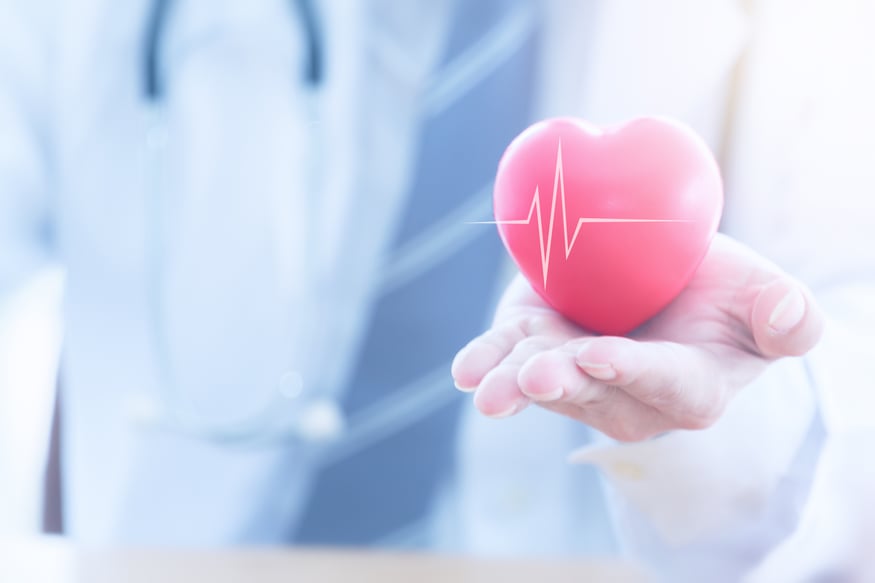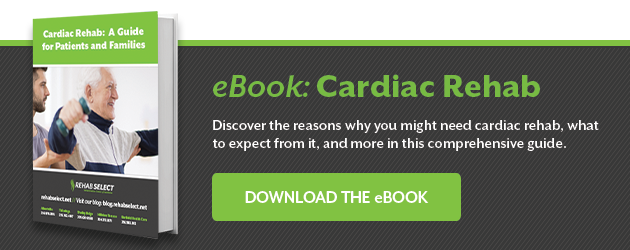
If you struggle with acute or chronic heart disease, your medical provider may refer you for cardiac rehabilitation. Cardiac rehab therapy can have substantial benefits, both in terms of improving your quality of life and reducing your risk of serious complications.
In this article, we’ll explore what cardiac rehab actually is, who might benefit from it, and what you can expect to gain from completing a cardiac rehab program.
What is Cardiac Rehabilitation?
Cardiac rehabilitation is a medical program aimed at people recovering from serious heart issues, such as a recent heart attack or heart failure, angioplasty or heart surgery. The program usually includes supervised exercise, education on a “heart-healthy” lifestyle, and guidance on how to manage and reduce stress.
During your rehab program, you will work with a team of medical and rehab professionals, such as physicians, nurses, physical and occupational therapists, nutritional and social workers, dieticians and psychologists, who specialize in the expert care for heart conditions. A customized program will be designed for you, that takes into consideration the specifics of your condition, your current physical state, any limitations you may be dealing with, and any other medical issues that are currently affecting you.
To get started with cardiac rehab, you will usually need a referral from your doctor. Your physician can inform you whether or not you are eligible for rehab. If you are, they will advise you on how to register for a cardiac rehab program, and you can begin to research appropriate rehab facilities.
Who is Eligible for Cardiac Rehab?
Anyone who has experienced an ongoing or severe heart condition might benefit from cardiac rehab, regardless of age. The American Heart Association suggests that you might benefit from cardiac rehab if you have, or have experienced a heart attack, a heart condition such as coronary artery disease, angina, or heart failure, or heart surgery, such as a coronary artery bypass, percutaneous coronary intervention, balloon angioplasty, valve replacement, pacemaker or defibrillator.
Despite how useful cardiac rehab can be for many people with heart conditions, however, the Million Hearts Initiative reports that only 10% of eligible patients with heart failure are referred for cardiac rehab. If you think you might benefit from cardiac rehab, it may be worth raising the matter with your physician.
Cardiac rehabilitation is usually covered by Medicare or your insurance provider, confirm the AHA. Exceptions may apply, so they advise that you consult with your medical team and insurer to determine if you would receive financial coverage.
Key Benefits of Cardiac Rehabilitation
Cardiac rehabilitation can have a significant positive impact on your quality of life. It has a number of key benefits, including:
1. Increase Life Expectancy
According to the Centers for Disease Control and Prevention (CDC), heart disease is the leading cause of death in the United States for both men and women. Cardiac rehabilitation has been consistently shown to reduce mortality rates from heart disease. For instance, a recent study by the American Association of Cardiovascular and Pulmonary Rehabilitation (AACVPR) found that “people who complete a cardiac rehabilitation program can increase their life expectancy by up to five years.” Similarly, the Million Hearts initiative reports that people who completed all 36 sessions of a full cardio rehab program had a 47% lower risk of death than those who only completed one session.
2. Reduce the Risk of Rehospitalization
Cardiac rehab is a great way of keeping yourself out of the hospital. For instance, heart attack patients who complete a cardio rehab program are 31% less likely to have another heart attack. Similarly, a study by the University of Melbourne found that cardiac rehabilitation reduces overall readmission to hospital for cardiovascular disease, and also shortened the time patients spent in the hospital if they were readmitted.
3. Improve Heart Fitness
Cardiac rehab includes both physical training and medication management, as well as guidance to make healthier lifestyle choices. A key result of this intervention is that your overall heart health may improve. For instance, the AACVPR states that a rehab program could “stop or reverse damage to the blood vessels in your heart,” enabling your heart to pump more efficiently.
4. Reduce Your Symptoms
Depending on which heart condition is affecting you, cardiac rehab may help to reduce the symptoms you experience or minimize the impact they have on your daily life. For instance, you may find that by following the exercises and guidance provided by your rehab team, you experience less chest pain or shortness of breath.
5. Get in Shape
It’s not only your heart that will get stronger during cardiac rehab; a study in the British Journal of Nursing confirms that patients who completed rehab reduced both their cholesterol levels and their overall body mass index. In other words, CR can make you fitter and slimmer, which in turn will mean less pressure on your heart. You may well feel more energetic and better able to manage your day-to-day activities and be able to return more quickly to your everyday routine.
6. Create a Heart-Healthy Lifestyle
Studies have also found that the educational aspects of cardiac rehab have a major impact on patients’ overall quality of life: CR patients tend to quit smoking more frequently and increase their exercise levels. This not only means they are less likely to end up back in hospital; they are also likely to feel better and experience fewer heart symptoms.
7. Learn How to Manage Stress
Stress plays a major role in heart disease; cardiac rehab will often include stress management training to help you improve how you cope with anxiety in your daily life. It’s important also not to underestimate how traumatic heart disease and especially heart attacks can be. A study by the University of Bourgogne confirms that cardiac rehab was a “crucial step in order to improve patients’ outcomes, by helping them to understand the influence of psychobiological risk factors, and to build strategies in order to manage daily stress.”
8. Manage Your Medications
If you have heart disease, medicines will likely feature in your treatment alongside lifestyle changes. You might be managing with more than one medication, such as beta-blockers for high blood pressure, antithrombotics to prevent blood clots, ACE inhibitors for heart failure, or statins for high levels of LDL (bad) cholesterol. During your CR treatment, your rehab team will monitor your medication use, make sure that you are receiving the best possible combination of treatments, and teach you how to manage your medication when you return home.
9. Improve Confidence and Well-Being
Cardiac rehab patients usually report that they feel better, are less anxious, and feel more confident about taking care of themselves at home after completing the program. For instance, a study by James Cook University, Singapore, found that patients “reported higher levels of physical and mental quality of life and lower levels of depression post-cardiac rehabilitation”. This is unsurprising - you leave a cardiac rehab program with a clear idea of how to take better care of yourself, guidance on managing stress and anxiety, a regular exercise regime which releases endorphins, and a healthier diet that will help you feel good.
Overall, cardiac rehabilitation can have a major impact on your overall quality of life. In the words of the American Heart Association:
“Following a diagnosis of heart attack or heart failure, or after a procedure such as an angioplasty or heart surgery, participating in cardiac rehab is one of the best things you can do for your heart. Cardiac rehab helps you regain control of your health.”
To find out more about cardiac care at Rehab Select, please click here or contact us for more information.





